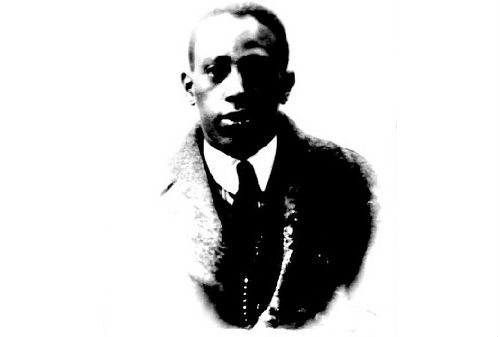 Leonard Harper (born April 9, 1899 in Birmingham, Alabama- died February 4, 1943, Harlem, New York) was a producer /stager/ choreographer in New York City during the Harlem Renaissance in the 1920s and 1930s.
Leonard Harper (born April 9, 1899 in Birmingham, Alabama- died February 4, 1943, Harlem, New York) was a producer /stager/ choreographer in New York City during the Harlem Renaissance in the 1920s and 1930s.
Leonard Harper’s works spanned the worlds of Vaudeville, Cabaret,Burlesque and Broadway musical comedy.[3] As a dancer, choreographer and studio owner, he coached many of the country’s leading performers, including Ruby Keller, Fred Astaire and Adele Astaire, and the Marx Brothers.
Leonard Harper was born in 1899 in Birmingham, Alabama, to William Harper, a performer, and his wife. It was the major industrial city of the state. Leonard Harper started dancing as a child to attract a crowd on a medicine show wagon, traveling with the show throughout the South. In 1915, Harper first toured in New York City, but quickly moved to Chicago.
There he began choreographing and performing dance acts with Osceola Blanks of the Blanks Sisters, whom he married in 1923.
Leonard Harper and Osceola Blanks (above) performed in his first big revue, Plantation Days, when it opened at the Lafayette Theatre in Harlem in 1922-1923. He began producing floor shows in Harlem and New York thereafter.
In 1923-1924, Harper offered the Duke Ellington Orchestra the house band position at the speakeasies, Connie’s Inn in Harlem and the Kentucky Club in Times Square. He was producing shows there and the Duke Ellington orchestra played as the house band at the Kentucky Club for the next four years.
By 1925, Harper owned a Times Square dance studio where black dancers taught their dances to white performers.
As a nightclub and Broadway producer, Harper counted Billie Holiday, Ethel Waters, Duke Ellington, Bill Robinson and Count Basie among his colleagues. He introduced Louis Armstrong and Cab Calloway to New York show business, and worked with Mae West, Josephine Baker, Lena Horne, Fats Waller and Eubie Blake.
Harper was part of the transition team when the Deluxe Cabaret was turned into the Cotton Club, producing two of its first revues during its opening. Leonard Harper’s biggest milestone on the Great White Way was his staging of the Broadway hit Hot Chocolates, which established the songs “Black and Blue” and “Ain’t Misbehavin” classic Broadway show tunes.
Harper was one of the leading figures who transformed Harlem into a cultural center during the 1920s. His nightclub productions took place at Connie’s Inn, the Lafayette Theatre (Harlem) at the opening of the new Apollo Theatre, and at other theatres in New York.
Harper died in Harlem, New York, on February 4, 1943.
A Harlem street was Co-Named after Leonard Harper on October 10, 2015 because of the efforts of his grandson Grant Harper Reid. “Leonard Harper Way” is located on 7th. Ave. (also known as Adam Clayton Powell Jr. Blvd.) and 132nd street.
Leonard Harper became a 2015 NAACP History Makers http://www.naacp.org/pages/history-makers-names (source).
Become a Harlem Insider!
By submitting this form, you are consenting to receive marketing emails from: . You can revoke your consent to receive emails at any time by using the SafeUnsubscribe® link, found at the bottom of every email. Emails are serviced by Constant Contact









